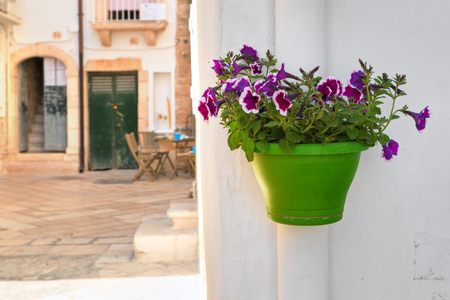Introduction to Container Herb Gardening in the UK
Herb gardening in containers is a delightful and practical way to bring fresh flavours and greenery into any British home, whether you have a cosy flat with a sunny windowsill or a spacious patio. The UKs varied climate may seem challenging, but growing herbs in pots offers flexibility and control over your plants environment. This approach lets you enjoy aromatic favourites like mint, basil, and rosemary year-round. Beyond their culinary uses, container-grown herbs add charm and a touch of nature to urban spaces, small gardens, or even rented properties where planting in the ground isn’t an option. Embracing this style of gardening means you can adapt to the unpredictable British weather, move your containers as needed for optimal sunlight, and keep your herbs close at hand for easy snipping when cooking. Whether you’re an experienced gardener or just starting out, herb container gardening is perfectly suited to the UK lifestyle, offering a beautiful blend of convenience, functionality, and aesthetic appeal.
Choosing the Right Containers for British Spaces
When creating a UK herb container garden, choosing suitable containers is essential. Whether you have a sunny windowsill in a Victorian terrace or a compact city balcony, the right pot can make all the difference. Here are some practical tips tailored to British homes and outdoor areas:
Pots for Every Space
Consider your available space and light. British windowsills are often narrow, while patios may be exposed to wind and rain. Select pots that fit snugly but allow enough room for herbs to grow. Terracotta is popular for its classic look and breathability, while frost-resistant ceramics or recycled plastic options suit the unpredictable British weather.
Comparison Table: Container Types and Their Features
| Container Type | Best For | Main Advantages | Considerations |
|---|---|---|---|
| Window Boxes | Sills & Balconies | Space-saving, easy access | Check weight on ledges, ensure good drainage |
| Pots | Patios & Small Gardens | Flexible placement, various sizes | Group for visual impact, choose frost-proof materials |
| Troughs | Larger Balconies & Patios | Grow multiple herbs together, stable in wind | May require more compost, ensure water does not stagnate |
Practical Tips for UK Conditions
- Always choose containers with drainage holes; wet British weather can quickly lead to root rot.
- If using window boxes, secure them safely to prevent accidents in high winds.
- Select light-coloured pots for south-facing spaces to reduce overheating on sunny days.
Eco-Friendly Options
If sustainability is important to you, look for recycled plastic or repurposed wooden crates. These options withstand UK rain and offer a rustic charm that suits both modern and traditional British homes.

3. Selecting Essential Herbs for UK Homes
When creating your herb container garden, choosing the right varieties is key to year-round success in British weather. Start with herbs that are both hardy and widely used in UK cooking. Parsley, with its fresh flavour and resilience, is a must-have for garnishing and adding depth to classic dishes like fish pie or soups. Chives grow well on windowsills and patios alike, providing a subtle onion taste perfect for salads and jacket potatoes. Thyme thrives even in cooler climates, making it ideal for slow-cooked stews and roasts. For those who enjoy Italian-inspired meals, oregano is robust and flourishes in containers, lending its aromatic notes to pizzas and tomato sauces. Sage, another traditional favourite, offers both decorative silvery leaves and an earthy taste essential for stuffing or roasted meats. Finally, don’t forget mint. It’s vigorous (so best kept in its own pot) and perfect for everything from summer Pimm’s to homemade mint sauce. These herbs not only cope well with the UK’s unpredictable weather but also bring authentic flavours of local cuisine straight to your kitchen.
4. Design and Layout: Making the Most of Small Spaces
Transforming a modest UK windowsill or patio into a thriving herb container garden is all about clever design and layout. With a blend of aesthetics and functionality, even the smallest nooks can become lush green retreats. Start by choosing containers that reflect your personal style—think terracotta pots for a classic look, galvanised tubs for a rustic touch, or sleek ceramic for modern minimalism. Grouping containers of varying heights not only saves space but also creates visual interest.
Maximising Vertical Space
Vertical gardening is a brilliant solution for compact areas. Wall-mounted planters, tiered shelves, and hanging baskets make use of unused vertical surfaces on patios or kitchen walls. This approach keeps herbs within easy reach and adds depth to your display.
Table: Space-Saving Container Ideas
| Container Type | Best Placement | Herb Suggestions |
|---|---|---|
| Window Boxes | Sills & Railings | Chives, Parsley, Thyme |
| Hanging Baskets | Patios & Porches | Basil, Mint, Coriander |
| Tiered Stands | Corners & Walls | Dill, Oregano, Sage |
| Pots in Crates | Decks & Balconies | Rosemary, Tarragon, Chervil |
Aesthetic Touches for UK Gardens
Add personality with decorative labels crafted from slate or wood, and introduce pops of colour with painted pots or patterned tiles beneath containers. For a truly British feel, mix traditional herbs like mint and parsley with lavender or chamomile to evoke cottage garden charm.
Functional Tips for Healthy Herbs
Ensure each container has proper drainage to prevent soggy roots—vital in the UK’s often damp climate. Arrange taller herbs at the back and trailing varieties at the front to maximise sunlight exposure. Regularly rotate containers to keep growth even and encourage bushy, healthy plants.
5. Caring for Your Herbs: Tips for the UK Climate
Keeping your herb container garden healthy in the UK’s ever-changing weather can be a rewarding challenge. With the right care, you’ll enjoy fresh flavours from your windowsill to your patio all year round. Here’s how to nurture your herbs through every season.
Watering Wisely
UK weather can be unpredictable, with periods of both heavy rain and dry spells. During spring and summer, check your containers daily—herbs like basil and coriander prefer consistently moist but not soggy soil. In rainy spells, ensure pots have good drainage to avoid root rot. In winter, water less frequently but don’t let the soil dry out completely.
Feeding Your Herbs
Container herbs need regular feeding as nutrients wash away faster than in garden beds. From March to September, feed your herbs every two weeks with a balanced liquid fertiliser or an organic option like seaweed extract. During the colder months, growth slows, so reduce feeding to once a month or pause altogether until spring returns.
Harvesting for Healthier Growth
Regular harvesting keeps herbs productive and bushy. Pinch off leaves or stems just above a pair of leaves to encourage new shoots. For perennial herbs like rosemary and thyme, trim lightly during growing season but avoid heavy cutting in autumn or winter to protect them from frost damage.
Seasonal Protection
Tender herbs such as basil struggle with chilly UK nights—move them indoors or cover with horticultural fleece when temperatures dip. Hardy herbs like chives and mint can stay outside but benefit from being grouped together for warmth or placed in sheltered spots during harsh weather.
Final Tip: Rotate and Refresh
Rotate your containers occasionally to ensure even sunlight, especially on a windowsill. Every couple of years, refresh the compost and divide overcrowded plants for continued vigour. With these simple steps tailored to the UK climate, your herb garden will thrive from one season to the next.
6. Bringing It All Together: Practical Uses and Inspiration
Creative Cooking with Homegrown Herbs
Your UK herb container garden is more than just a pretty feature—it’s a fresh source of flavour for your kitchen. Sprinkle chopped chives over your jacket potatoes, stir fresh mint into your summer Pimm’s, or add rosemary sprigs to your Sunday roast lamb. Basil leaves can brighten up a simple tomato sandwich, while thyme elevates homemade soups and stews. Experiment with classic British dishes like cottage pie or fishcakes by adding finely chopped parsley or dill for an extra burst of freshness.
Decorative Touches for Your Home
Herbs aren’t just for eating; they also make lovely decorative accents. Arrange small pots of sage, oregano, or lavender on your windowsill for a rustic, countryside feel. Tie bunches of dried herbs with twine and hang them in the kitchen or hallway—perfect for both their scent and their style. You can even create mini-herb bouquets as table centrepieces when entertaining guests, giving your home a touch of natural beauty straight from your patio or balcony.
Everyday Wellness and Simple Rituals
Many traditional British homes have long enjoyed the simple pleasure of herbal teas. Snip some fresh lemon balm or chamomile for a calming evening brew. Add sprigs of mint to cold water for a refreshing drink after a day in the garden. The act of tending to your herbs—watering, harvesting, and enjoying their scents—brings a mindful pause to daily life, encouraging you to slow down and appreciate the small joys around you.
Sharing the Bounty
If you find yourself with an abundance, share your harvest with neighbours or friends—a small jar of homemade herb salt or infused oil makes a thoughtful gift. Or invite loved ones round for an afternoon tea featuring your own homegrown ingredients. Sharing what you’ve grown not only fosters community spirit but also spreads inspiration for others to start their own herb gardens.
Let Your Herb Garden Inspire You
From windowsill to patio, growing herbs is about more than just convenience; it’s about bringing freshness, beauty, and well-being into everyday British life. Let your container garden inspire new recipes, creative decor ideas, and moments of connection—proving that even the smallest space can be transformed into something truly special.


